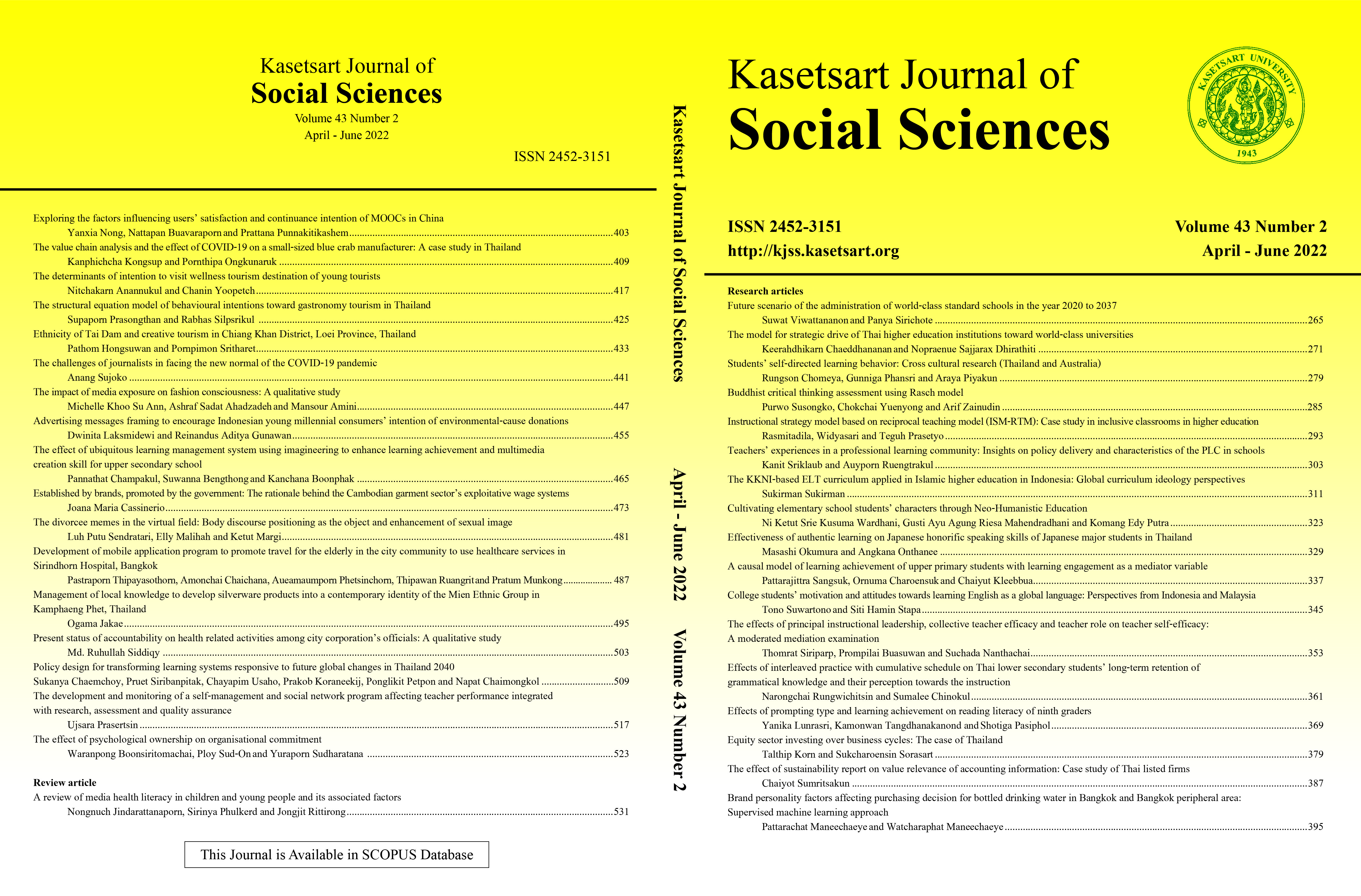Future scenario of the administration of world-class standard schools in the year 2020 to 2037
Keywords:
future scenario, the year 2020 to 2037, world-class standard schoolsAbstract
The desirable future educational scenario is that schools provide flexible and relevant education based on twenty-first-century skills. Schools also organize various active learning activities to respond to learners’ aptitude, potentiality, and needs. Schools are decentralized and become juristic entity schools that initiate operations based on the standardized system. Administrators and teachers receive training and development to be experts in specific fields. Moreover, there are fewer than 40 students in each classroom, and every student occupies academic excellence, communicates bilingually, has thinking advancement skills, works creatively, and has a social responsibility. On the contrary, the undesirable educational scenario is that schools emphasize responding merely to academic aspects and providing passive learning activities. The administration and management follow the policy and assessment for awards rather than specifying concrete goals. School policies change more often and lack continuous coaching and mentoring, and awareness of the new normal. Moreover, school administrators lack vision and do not dare to change their routine. Teachers lack teaching expertise, while students emphasize acquiring knowledge rather than learning. The possible trends of the future educational scenario are the schools develop a flexible and balanced curriculum that enhances essential twenty-first-century skills. An integrated learning organization has to take the new normal into account. Besides, the administration and management have to be inclusive with qualified education experts and also based on the Thailand Quality Award (TQA) criteria. School administrators and teachers are knowledgeable and competent, and the coaching and mentoring strategies are implemented. Students have academic excellence and social responsibility.
Downloads
Published
How to Cite
Issue
Section
License

This work is licensed under a Creative Commons Attribution-NonCommercial-NoDerivatives 4.0 International License.
This is an open access article under the CC BY-NC-ND license http://creativecommons.org/licenses/by-nc-nd/4.0/










